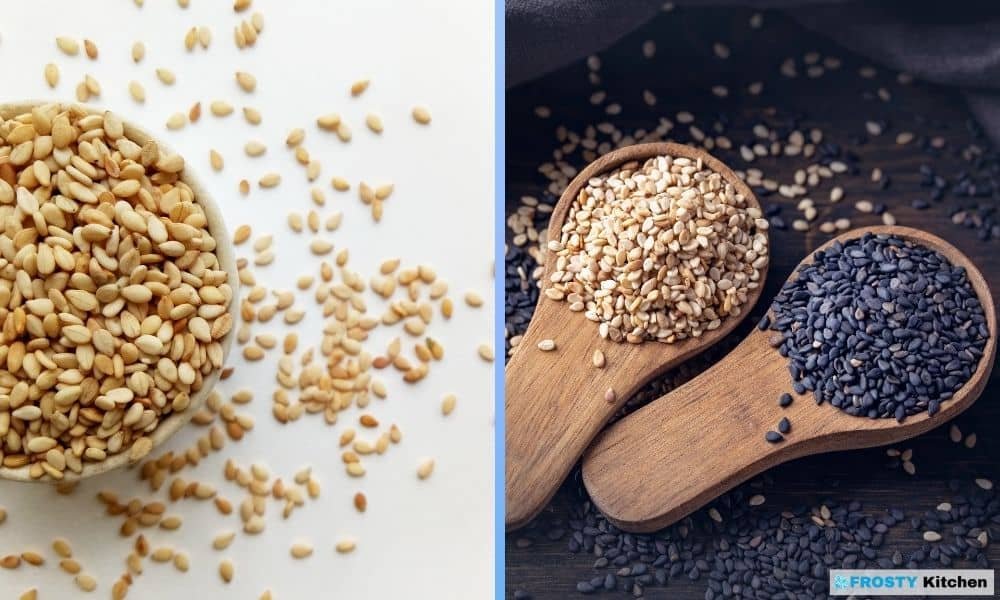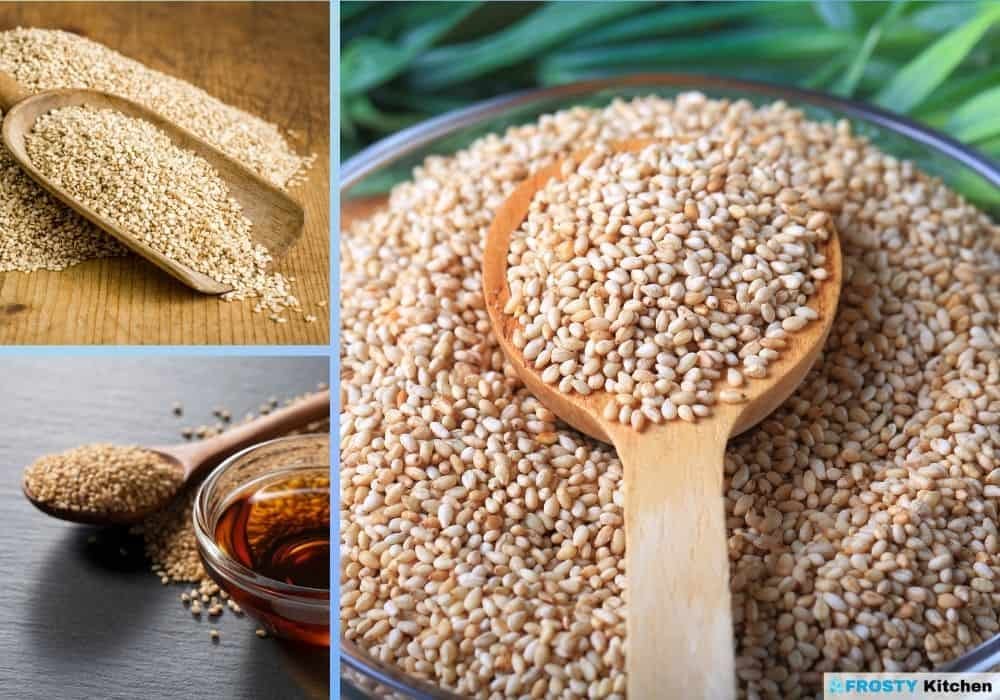Sesame seeds, derived from the Sesamum indicum plant, are a common ingredient in many global cuisines, offering a nutty flavor and a subtle crunch to dishes. With a history tracing back to ancient civilizations, sesame seeds have a rich cultural and culinary heritage. Freezing sesame seeds can be an excellent method to preserve their freshness and extend their shelf life. This article unfolds the origins, benefits, and a detailed guide on how to freeze sesame seeds effectively.
What is Sesame Seeds?
Sesame seeds are tiny, oil-rich seeds from the Sesamum indicum plant, known for their nutty taste and delicate, almost invisible crunch. They are commonly used in baking, and cooking, and are the main ingredient in tahini, a savory paste used in many Middle Eastern and Mediterranean dishes.
Origin and History
- Sesame seeds are believed to be among the oldest cultivated crops in the world, with a history stretching back to ancient Egypt and India.
- They have been a significant part of human diet and culture, symbolizing immortality in some ancient cultures, and are now cultivated worldwide, especially in Africa and Asia.
Nutritional Value
- Sesame seeds are a good source of healthy fats, protein, B vitamins, minerals, fiber, antioxidants, and other beneficial plant compounds.
- Consuming sesame seeds can aid in blood pressure management, reduce inflammation, and may also help lower cholesterol and triglycerides.

Benefits of Freezing Sesame Seeds
Freezing sesame seeds offers several advantages:
- Preservation of Freshness and Quality: Freezing helps retain the freshness, quality, and nutty flavor of sesame seeds.
- Extended Shelf Life: Freezing extends the shelf life of sesame seeds, ensuring you have a ready supply whenever needed.
- Protection Against Rancidity: Due to their high oil content, sesame seeds can go rancid. Freezing helps in slowing down this process.
Preparing Sesame Seeds for Freezing
- Packaging: Employ airtight, freezer-safe containers or vacuum-sealed bags to keep sesame seeds protected from moisture and freezer burn.
- Portioning: Divide sesame seeds into usable portions for easy retrieval.
Step-by-Step Guide to Freezing Sesame Seeds
Preserving the freshness and quality of sesame seeds by freezing is a straightforward process. Here are the methods to freeze sesame seeds while ensuring their quality remains intact.
Method 1: Freezing in Airtight Containers
- Preparation: Ensure sesame seeds are clean and dry.
- Storage: Transfer sesame seeds into airtight containers.
- Freezing: Position the containers in the freezer, ensuring they lay flat for uniform freezing.
Method 2: Freezing with a Vacuum Sealer
- Preparation: Same as Method 1, ensure sesame seeds are clean and dry.
- Vacuum Sealing: Place sesame seeds in vacuum seal bags, use a vacuum sealer to remove all air, and then seal the bags.
- Storage: Label the bags with the date and place them in the freezer.
Refreezing Sesame Seeds
Refreezing sesame seeds is not advisable as it could lead to a loss of freshness and possibly affect the quality.
Storage Duration and Factors Affecting it
- Duration: Frozen sesame seeds can be stored for up to 6 months to a year, depending on various factors.
- Factors: Factors like the initial freshness of sesame seeds, the method of freezing, and the consistency of the freezing temperature can affect the storage duration.
Frequently Asked Questions
Q1: How can I use frozen sesame seeds?
- Frozen sesame seeds can be used directly from the freezer in baking, cooking, or as a garnish without any need for thawing.
Q2: Do sesame seeds lose their flavor over time?
- Yes, like other seeds and nuts, sesame seeds can lose their flavor over time, especially when exposed to air, light, or moisture. However, freezing can significantly slow down this process and preserve their flavor.
Q3: Can I toast sesame seeds before freezing them?
- Yes, you can toast sesame seeds before freezing them. Toasting may even help in extending their shelf life further as it removes any residual moisture.

